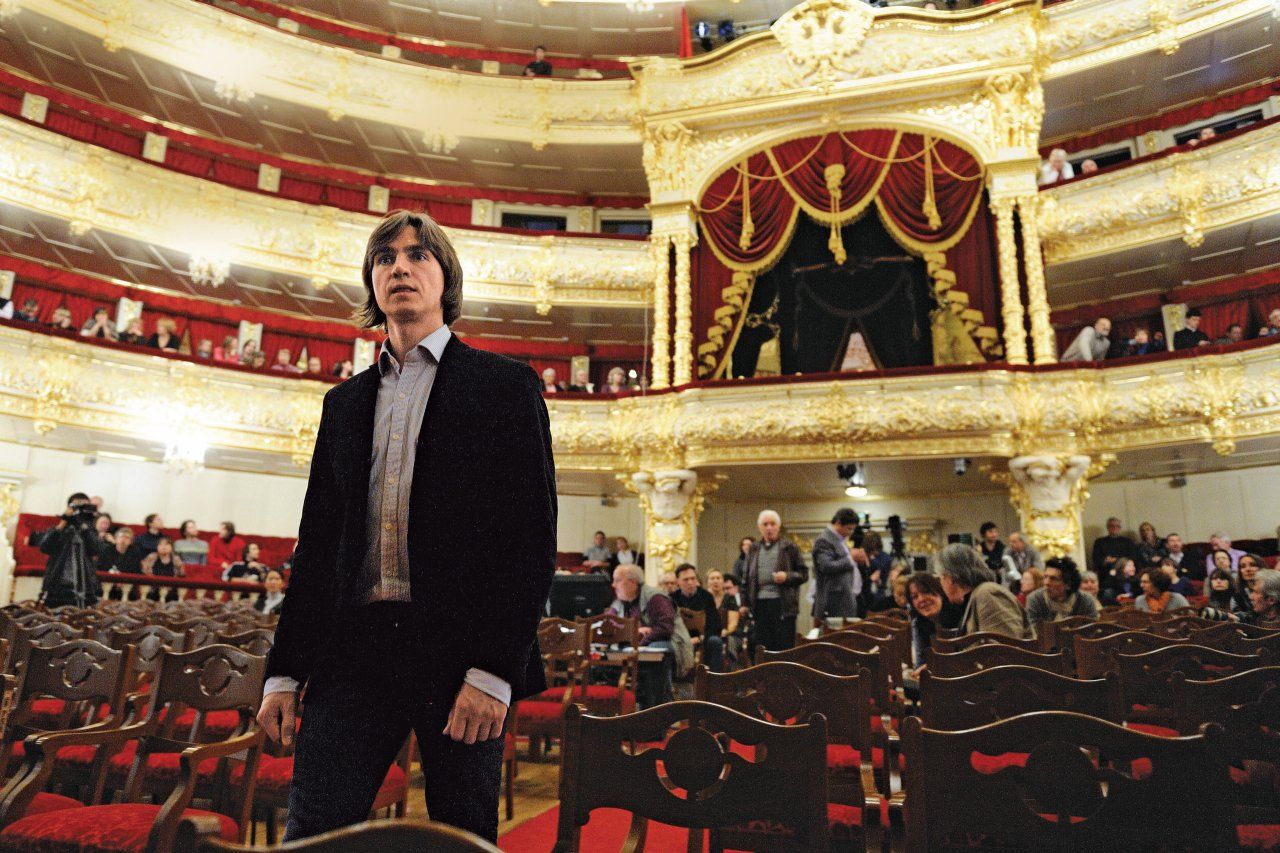
Russian history books are thick with sinister plots and assassination attempts. But the acid attack on the artistic director of the Bolshoi Ballet shocked even the most jaded Muscovites. On Jan. 17, Sergei Filin, whose aristocratic features and virtuoso technique as a dancer had earned him the nickname the Prince of Ballet, was walking up to his apartment building when a hooded man emerged from the shadows and threw sulfuric acid into Filin's eyes and face. As the man ran off, the desperate director grabbed clumps of snow to quell the burning in his eyes.
Having undergone an intense round of surgery to save his sight and his face, Filin spoke to Newsweek by phone from the intensive care unit at a Moscow hospital. Though no arrests have been made, he darkly suggested the attack was the culmination of a long-running battle at the Bolshoi Theatre over roles, money, and on-stage glory.
At the hospital, with only his wife and sister at his side, Filin had spent his time analyzing "the war" and said it was clear he was up against someone seeking to take power at the world-renowned theater. "I constantly faced provocations over bribes and pressure to hire certain ballerinas," he said. "Somebody must have been paying our dancers money to create conflicts and stage small revolutions, to confront me publicly and backstage."
In his younger days, Filin, 42, danced the most challenging parts in repertoire, becoming one of the most sought-after dancers in the world by the mid-1990s. But a hip injury forced him to retire as a performer, and he instead continued his career as artistic director.
Though police have questioned people who work at the theater, all they've found so far is suspicion among troupe members, says prima ballerina Anastasia Meskova. "The troublemakers managed to plant the seeds of strife among the ballet dancers."
For years the imposing neoclassical theater across the street from the Kremlin has been plagued by scandal. "We dealt with all sorts of dirty intrigues and leaks of compromising materials—as if somebody were out to get us," Filin said.
In one notorious incident two years ago, sexually compromising photographs of the Bolshoi deputy director, Gennady Yanin, surfaced on the Internet—reportedly payback because he didn't give in to financial blackmail. Embarrassed by the controversy, the company's dancers demanded Yanin be fired.
Filin himself recounted how, after a standoff with another faction within the ballet, someone punctured his car tires and hacked into his personal email and Facebook accounts to steal his correspondence as well as his online identity.
"The troublemakers managed to plant the seeds of strife among ballet dancers."

Despite the harassment, the threats, and the acid attack, Filin is undaunted. When doctors removed the white gauze bandages from his face after his most recent surgery, he didn't care to look at himself and didn't even think to ask for a mirror, he said. "All I really felt concerned about was how many lines I could see on the eye chart," he said. "The attackers were eager to stop me from watching every ballet from my director's seat, from marveling at the beauty of my dancers on stage."
Nothing, he said, will stop him from continuing his artistic work. Soon after the attack, the Bolshoi's top dancers gathered around a computer to talk to their director on Skype. Filin called from the hospital right before the premiere of La Bayadère, his latest project. He told them how beautiful they were, "like gods," and that "although I couldn't see them this time with my two eyes, I would be watching them through the eyes of the thousands of spectators, enjoying the applause that would be loud enough to reach me here at the hospital."
Uncommon Knowledge
Newsweek is committed to challenging conventional wisdom and finding connections in the search for common ground.
Newsweek is committed to challenging conventional wisdom and finding connections in the search for common ground.
About the writer
To read how Newsweek uses AI as a newsroom tool, Click here.






